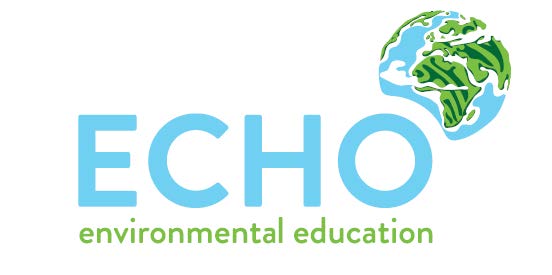Africa Foundation was established to facilitate the empowerment and development of people living alongside protected wildlife areas and to help them access the potential socio-economic benefits available through ecotourism.

ECHO Environmental Education
ECHO Education Program
Introduction to the ECHO Education Program
Africa Foundation was established to facilitate the empowerment and development of people living alongside protected wildlife areas and to help them access the potential socio-economic benefits available through ecotourism. We seek to create socio-economic development growth through education, health, small business development and conservation/environmental initiatives and we have invested extensively into basic service delivery infrastructure to provide communities with schools and clinics, safe access to water and sanitation, improved facilities and expanded educational opportunities through bursaries and leadership development.

ECHO Vision: Environmentally conscious communities who are informed to make decisions.

Objectives
Through engagement with school children, their families and the school teaching staff:
- Increase the knowledge of environmental issues and climate change with specific focus on local concerns.
- Increase understanding of the value of the environment, and the direct benefits of protecting it.
- Instill a positive attitude towards the protection of the environment.
- Modify behaviors which have a negative impact on the environment.
- Empower communities to identify and evaluate the risk of behaviors that contribute to climate change.
Through the ECHO Environmental Education Program, a curriculum-based teaching manual and classroom worksheets have been developed for schools in rural KwaZulu Natal. The teaching pack is not only aligned with the Governments curriculum, but also with the local flora and fauna, so that children can really identify with the messaging and see how it fits into their everyday life.
Teachers are trained on how to weave the worksheets into their lesson plans and facilitators, specializing in ECHO are placed into schools who have adopted the program to assist with practical activities and the development and running of voluntary Eco-Clubs.
The grade 6 and 7 children are then also taken to the nearby Game Reserve for an excursion with an experienced ranger who brings the lessons to life.
Back in 2019, work commenced on expanding environmental education into High Schools in South Africa. At high school the syllabus is integrated into the natural sciences curriculum. It has been now been fully developed for Grade 8, and our target is to have the Grade 9 materials and training completed to ensure continuity, as the students move through the school. Eco-Club in High schools will be a further opportunity for students who are particularly interested to engage with information and activities, run by ECHO facilitators, who will also host the primary school sessions, therefore creating continuity for children graduating from feeder primary schools into the high school. To date 4 high schools in Mpumalanga have adopted the program, with 2 facilitators recruited to support these schools. 1 secondary school in KZN is also enrolled.
2021 aims to see the expansion of the program into more schools, up to Grade 9, with additional materials developed for digital learning platforms.
Funding Needed
This budget is to fund the implementation of ECHO in five schools in the KZN region – four primary schools and 1 high school (grades 8 and 9), as well as 4 high schools in MPU (grades 8 and 9). This includes the production of classroom resources, provision of a full-time ranger and school facilitators dedicated to the program. Also inclusive of transport from schools to andBeyond Phinda Private Game Reserve, or andBeyond Ngala Private Game Reserve, and lunches for children on game drives.
- ECHO Phinda (4 primary schools and1 high school): R1,200,000 / $82,758
- ECHO MPU (4 high schools): R600,000 / $41,379
- ECHO Curriculum development Gr9: R400,000 / $27,586
Rate of Exchange: $1: R14.5